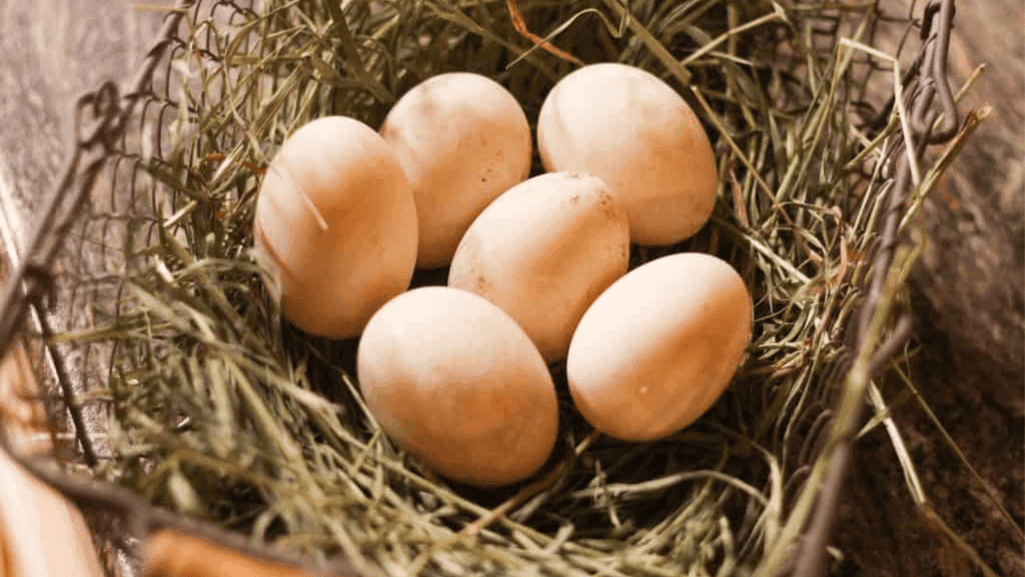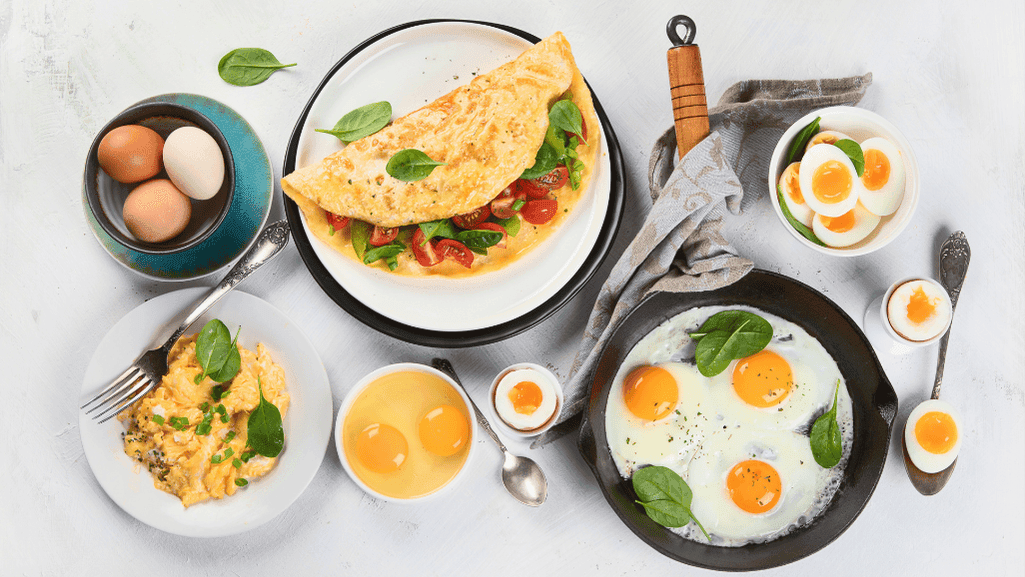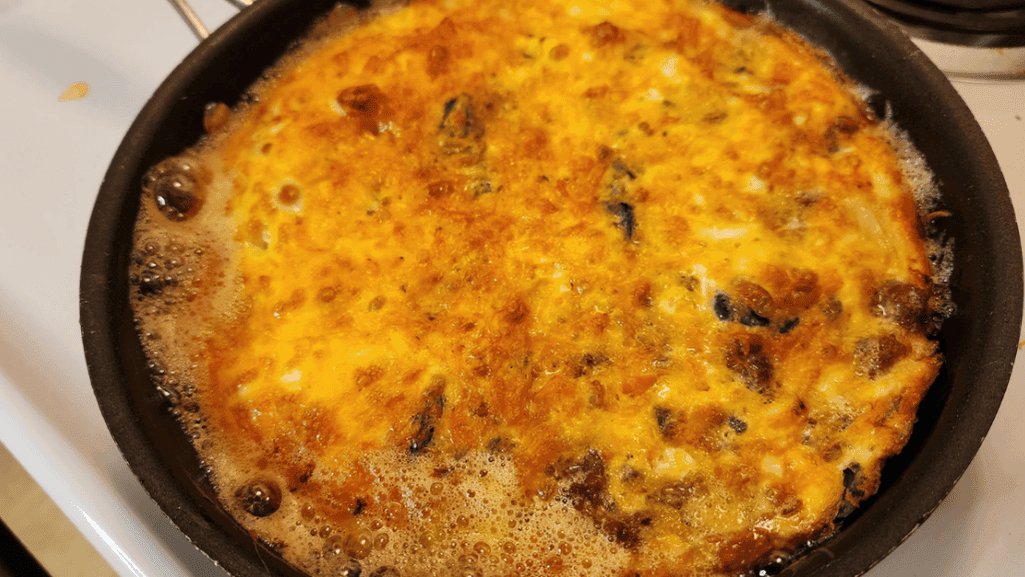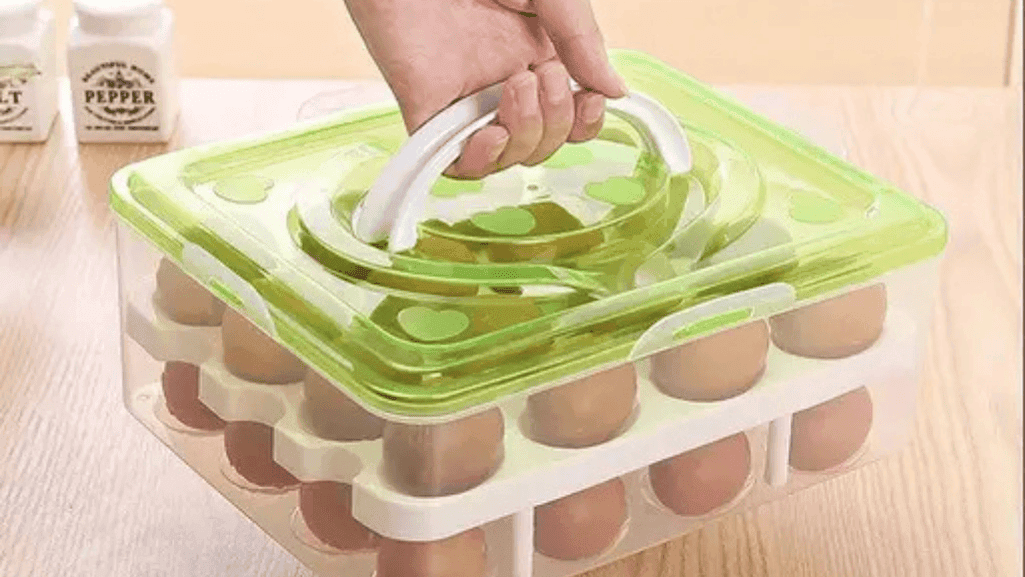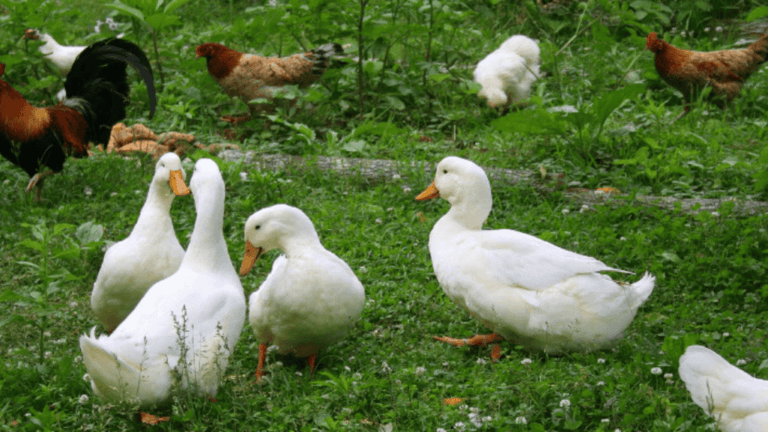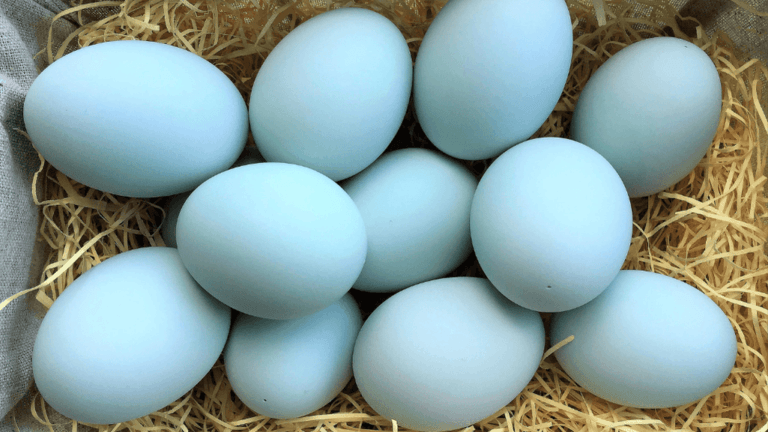Duck eggs are a great alternative to chicken eggs. They have a unique flavor and texture that can make your dishes better. With their bigger size and richer yolks, duck eggs offer many benefits for cooking and baking.
How to use duck eggs in recipes, they work just like chicken eggs. But, keep in mind a few tips for the best results. Duck eggs taste milder and make baked goods lighter and richer.
Measuring duck eggs accurately is key in baking. They weigh 2.5 to 3 ounces, while chicken eggs are about 2 ounces. To get the right balance, weigh the duck eggs. Or, add a teaspoon to a tablespoon of flour for each duck egg to avoid a too eggy mix.
Duck eggs are also better for you than chicken eggs. They have more vitamin A, B-12, protein, and omega-3 fatty acids. Adding duck eggs to your recipes means you get more nutrition while making tasty meals.
Key Takeaways
- Duck eggs can be used as a substitute for chicken eggs in most recipes, providing a richer flavor and texture.
- Precise measurement is important when baking with duck eggs due to their larger size compared to chicken eggs.
- Adding a small amount of extra flour or reducing liquid can help maintain the proper consistency in baked goods.
- Duck eggs offer superior nutritional value, containing higher levels of vitamins, minerals, and omega-3 fatty acids.
- Experimenting with duck egg recipes can lead to delightful culinary creations with enhanced flavor and nutrition.
Understanding Duck Eggs
Duck eggs are becoming more popular among those who care about their health and love cooking. They have a special nutritional profile and a rich taste. Duck eggs and chicken eggs are similar but also have some key differences.
Nutritional Benefits of Duck Eggs
Duck eggs are packed with vitamins A, B-12, protein, and omega-3 fatty acids. They have almost a day’s worth of vitamin B12 in one egg. This vitamin is key for making red blood cells and keeping nerves healthy.
Duck eggs also have more protein, omega-3, and vitamin D than chicken eggs. This makes them a great choice for a healthy diet. They are higher in fat and calories because they are bigger, but they also have antioxidants that might help lower cancer risks.
The yolks of duck eggs are bigger, which means they have more nutrients. But, it’s important to remember they have more calories, fat, and cholesterol too. So, it’s good to think about this when adding them to your meals.
Differences Between Duck Eggs and Chicken Eggs
Duck eggs have a thicker shell than chicken eggs, which helps them stay fresh longer. They taste richer and creamier, with a more “egg-like” flavor. Their yolks are bigger and thicker, and their whites are almost clear and stickier than chicken egg whites.
Some people with chicken egg allergies can eat duck eggs without problems. But, it’s always best to talk to a doctor first. Duck eggs can replace chicken eggs in most recipes, but use 2 duck eggs for every 3 chicken eggs because of their size. Chefs love them for making dishes and baked goods taste and feel richer.
Cooking Techniques for Duck Eggs
Duck eggs are versatile and can be used in many ways. You can boil, poach, scramble, or bake them. They have a rich flavor and creamy texture, making them a great twist on traditional eggs. Here are some tips for using duck eggs in your cooking and baking:
Boiling and Poaching How to Use Duck Eggs
When boiling duck eggs, avoid overcooking because of their extra protein. For a perfect hard-boiled duck egg, start with cold water. Bring it to a boil, then remove from heat and let stand for 12 minutes. Adjust the time based on the egg size. For a softer yolk, reduce the standing time.
Poaching duck eggs is similar to chicken eggs, but the whites might be firmer.
Scrambling Duck Eggs
Scrambled duck eggs are a tasty way to enjoy their rich flavor and creamy texture. When frying, cook them like chicken eggs but be aware of their firmer whites. Try different cooking times and techniques to find your favorite doneness.
Baking with Duck Eggs
Duck eggs are great for baking because they make cakes, meringues, and souffles lighter and more stable. Their higher fat content in yolks adds a richer flavor and tender crumb. Beating egg whites may take more effort due to extra protein, but they whip up well once frothy. Duck egg baking is a great way to explore new textures and flavors in your favorite recipes.
“I love using duck eggs in my baking. They add a richness and depth of flavor that you just can’t get with chicken eggs. Plus, the cakes always turn out so light and fluffy!” – Sarah, home baker
Duck eggs are a delicious and nutritious alternative to chicken eggs. They offer unique properties and flavor, making them a staple in your kitchen. So, why not try them in your next meal or baking project?
Recipes Featuring Duck Eggs
Make your dishes more special with duck eggs. They add a rich flavor and a unique twist to classic recipes. Duck eggs have more fat and protein than chicken eggs, making your food taste better and feel creamier.
Even though they cost more, up to $12 per dozen, they’re worth it. They bring a unique taste and health benefits to your meals.
Try a duck egg quiche for a classic dish. Duck eggs make the custard base smooth and creamy. For something lighter, make a duck egg frittata with your favorite veggies and herbs.
Duck Egg Custard
Enjoy the rich taste of duck egg custard. The eggs’ fat makes it silky and smooth. Add vanilla, nutmeg, or caramel for extra flavor.
Duck eggs have thicker shells, which help them stay fresher longer compared to chicken eggs.
Duck Egg Pasta
Make your pasta better with duck eggs. They make the dough more pliable and elastic. This results in tender pasta that tastes amazing.
Pair your duck egg pasta with a rich carbonara or a light pesto. Use two duck eggs for every three chicken eggs in your recipe.
Start the journey of hatching duck eggs and use them in your cooking. Duck eggs open up a world of flavors in quiches, frittatas, custards, and pasta.
Tips for Storing Duck Eggs
Keeping duck eggs fresh is key. Duck eggs have thicker shells than chicken eggs. This means they last longer. But, it’s important to store them right to keep them fresh and safe.
Ideal Storage Conditions
For the best storage, keep duck eggs in a cool, dry spot. The perfect temperature is between 33°F and 40°F (0.5°C to 4°C). The fridge is the best place for them, as it keeps them fresh longer than room temperature.
Store the eggs in a clean container with the pointed end down. This keeps the yolk in the middle and the air cell in place. Don’t wash the eggs before storing, as it can make them more likely to get bacteria.
Shelf Life of Duck Eggs
The shelf life of duck eggs depends on how you store them. At room temperature, they can last up to 2 weeks. But, in the fridge, they can stay fresh for 6 weeks. If you need to keep them longer, you can freeze them for up to 1 year.
“Duck eggs stored with the pointed end facing downwards can prolong shelf life.”
Storing duck eggs right is important for keeping them fresh. Use clean containers, keep the temperature steady, and only wash the eggs if you must. By doing this, you can enjoy duck eggs for a longer time.
Common Questions About Duck Eggs
Many people wonder about duck eggs in cooking and baking. They are rich in flavor and versatile. Here are answers to common questions to help you use duck eggs in your kitchen.
Can You Substitute Duck Eggs for Chicken Eggs?
Yes, you can use duck eggs as a chicken egg substitute. Bakers often choose duck eggs for richer, fluffier results. Use two duck eggs for every three chicken eggs in a recipe.
Duck eggs are about 30% larger than chicken eggs. They have more fat and a bigger yolk-to-white ratio. This can change the texture and taste of your dishes.
How to Choose Fresh Duck Eggs
Choose duck eggs with clean, uncracked shells. Fresh eggs have a thick, chalky coating. They can be stored at room temperature for 3 weeks or in the fridge for 4 months.
To keep them fresh, store duck eggs with the pointy end down. This keeps the yolk centered and prevents air pockets. If you’re unsure about freshness, try the float test. A fresh egg will sink, while an older one will stand upright but not float.


